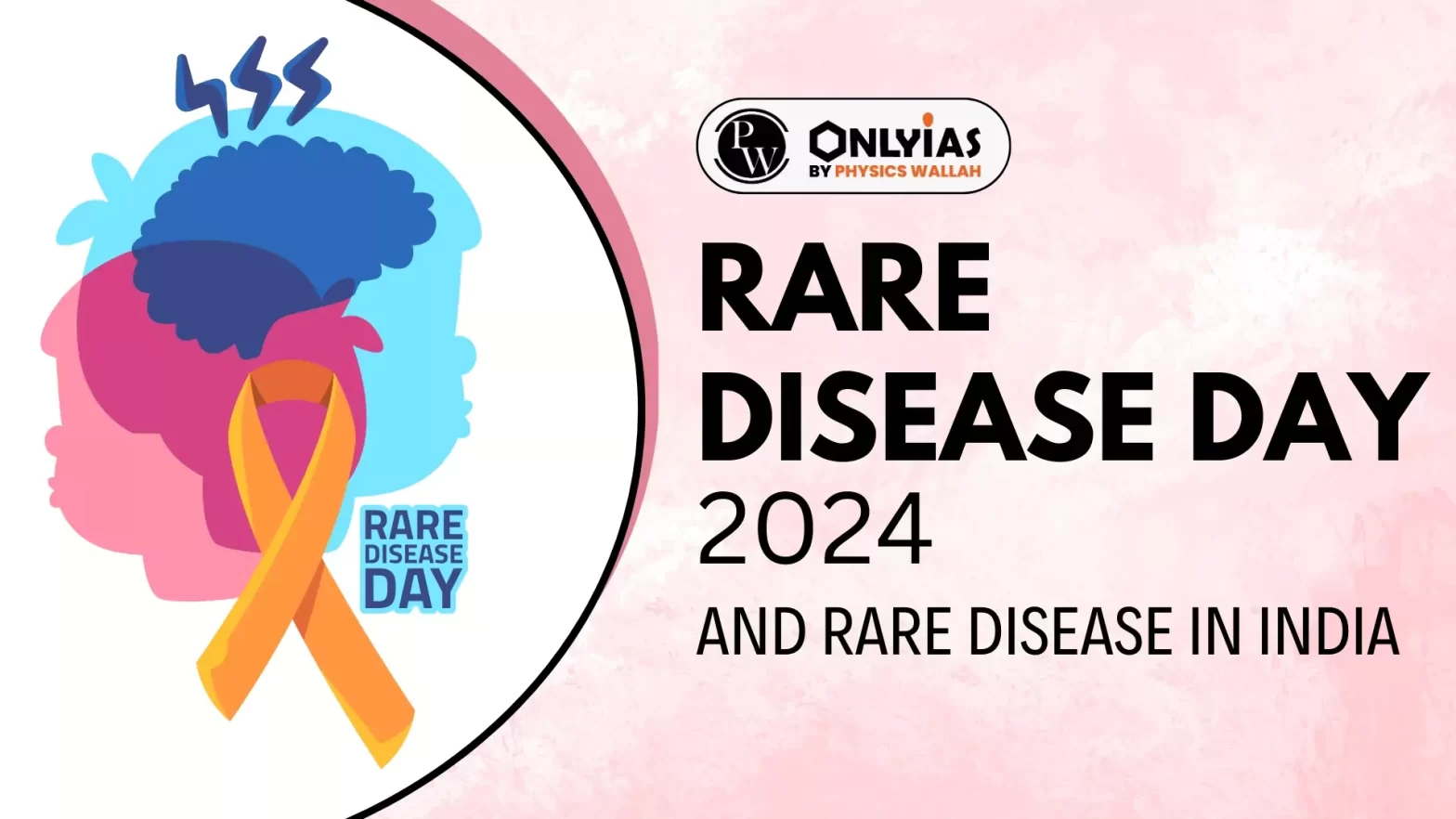Context:
This editorial is based on the news “India’s fight against rare diseases” which was published in the Hindu. The last day of February every year is observed as a Rare Disease Day. According to the World Health Organization (WHO), rare diseases afflict 1 or less per 1,000 population.
Rare Disease Day
- Rare Disease Day was first observed in 2008 by EURORDIS and the Council of National Alliances to raise awareness about rare diseases.
- EURORDIS – Rare Diseases Europe is a non-profit alliance of over 1000 rare disease patient organizations from 74 countries that work together to improve the lives of people living with a rare disease globally.
- The Council of National Alliances (CNA) is the governing body of the European Network of National Alliances.
|
What is Rare Disease?
- A rare disease is a health condition of low prevalence that affects a small number of people compared with other prevalent diseases in the general population.
- India accounts for one-third of the global rare disease incidence, with over 450 identified diseases.
- Example-Spinal Muscular Atrophy and Gaucher’s disease, Mucopolysaccharidosis type 1 and Whipple’s disease.
Rare Disease in India: Current Status
- Less than 50% of the 450-odd rare diseases identified in India are treatable.
- Treatments approved by the Drugs Controller General of India (DCGI) are available for just about 20 rare diseases and can be availed only from Centres of Excellence (CoEs).
- Since CoEs are few (12), unevenly distributed, and uncoordinated, late diagnosis, inadequate therapies and lack of timely availability are the norm.
Need to Study Rare Disease in India
- Timely diagnosis of disease: On an average, it takes seven years for their conditions to be diagnosed (if at all).
- Training Physicians to improve diagnosis and awareness: Physicians are generally unaware of how to interpret the signs and symptoms;
- Prenatal screenings: Expectant mothers with a history of rare diseases in their family must undergo mandatory prenatal screening and post-natal diagnosis and care.
Challenges of Rare Disease in India
Here are some of India’s major challenges in addressing rare diseases.
-
Lack of Standard Definition:
- India does not have an official definition of Rare Disease.
-
Lack of Sufficient Data to Necessitate Policy Formulation in India:
-
- The Ministry of Health and Family Welfare formulated a national policy to treat rare diseases in 2017 but withdrew it in 2018 owing to “implementation challenges” and confusion regarding disease coverage, patient eligibility etc.
-
Funding Issue:
-
- The Budget’s allocation for rare diseases remains low at ₹93 crore for 2023-2024.
- Under the National Policy for Rare Disease (NPRD) guidelines of 2021, up to ₹50 lakh is allowed per patient, which will be disbursed to the concerned CoE.
- As chronic rare diseases usually require lifelong management and therapy, this amount is woefully inadequate.
- The NPRD has urged the CoEs to crowdfund to treat rare disease patients.
-
- More than ₹47 crore of the ₹71 crore financial assistance allocated to the 11 CoEs for the current year remains unused.
- There is no parity between CoEs in fund utilisation.
Way Forward to Rare Disease
- Withdraw GST on life saving drugs.
- Frame a standard definition of rare diseases, increase budgetary outlays, dedicate funding for drug development and therapy.
- Increase the number of Centre of Excellence (CoEs) while also ensuring better coordination and responsible utilisation of funds.
- State governments must introduce social assistance programmes and develop satellite centres under the CoEs.
- Issue of exorbitant drug prices and availability must be addressed: Rare diseases cannot be left to market forces as there just aren’t enough market incentives for drug manufacturers.
- Incentivise domestic manufacturers under the Production-Linked Incentive Scheme.
Also Read: Production Of Drugs To Counter Rare Diseases
| Prelims PYQ (2020):
What is the importance of using Pneumococcal Conjugate Vaccines in India?
1. These vaccines are effective against pneumonia as well as meningitis and sepsis.
2. Dependence on antibiotics that are not effective against drug resistant bacteria can be reduced.
3. These vaccines have no side effects and cause no allergic reactions.
Select the correct answer using the code given below:
(a) 1 only
(b) 1 and 2 only
(c) 3 only
(d) 1, 2 and 3
Ans: (b) |
![]() 29 Feb 2024
29 Feb 2024
